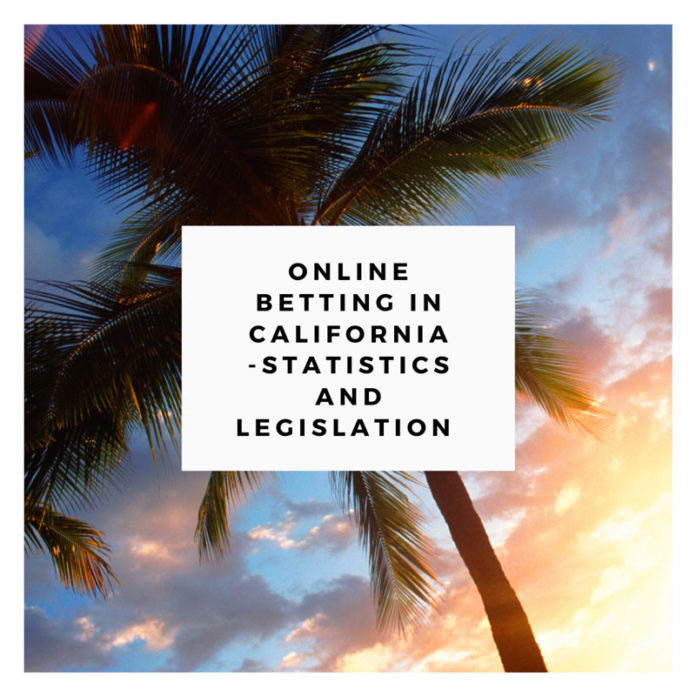Published in cooperation between time2play.com and SanBenito.com
California, famous for its broad economic spectrum and liberal politics, remains conservative about online gambling. Although US online sports betting is legal in most states, such as New Jersey and Pennsylvania, California’s gambling laws are still tightly controlled, driven mainly by tribal gaming coalitions.
Attempts to allow online sports wagering, such as 2022’s Propositions 26 and 27, were soundly defeated by voters, highlighting the complex challenges of bringing different groups together. This article will examine California’s current betting scene, unsuccessful law changes, money and social impacts, legal options, and what might happen with internet gambling.
The Landscape of Gambling in California
The gambling infrastructure in California has a variety of legal gambling forms, tribal casinos, card rooms, racing, and the state lottery. Tribal casinos hold market leadership, with more than 70 gaming facilities operating under state compacts. These compacts have led economic development in many areas, producing billions annually and helping public programs with revenue-sharing agreements. Though smaller in size, card rooms offer an alternative casino, with games of poker and some table games, but card rooms are restricted from banked games, such as blackjack.
Horse racing has been a tradition for centuries, and wagering is permitted on the course and at licensed OTB outlets. The California Lottery has primarily been a prosperous source of public education funding, but relatively less than other gambling forms.
Although it is such an intense landscape, California has very few regulations. Laws do not allow online casinos or sports betting, and residents are forced to seek other means, such as sweepstakes casinos or travel out of state to access more diverse options.
Failed Attempts to Legalize Online Betting
In 2022, California voters shot down two significant plans to legalize sports betting. Proposition 26, supported by Native American tribes, suggested allowing in-person sports betting at tribal casinos and private race tracks and expanding table games like roulette and craps at these locations.
On the other hand, Proposition 27, backed by big national gambling companies, wanted to open up mobile and internet sports betting, letting non-tribal businesses join the market. Both propositions faced widespread opposition, partly due to their competing visions. Tribal gaming groups argued that Prop 27 would threaten their sovereignty and reduce their revenue, while critics of Prop 26 highlighted its limited scope and potential to increase lawsuits against card rooms.
Public sentiment also leaned against both measures due to concerns about gambling addiction and insufficient safeguards. Unlike New Jersey and Pennsylvania, which have successfully implemented online betting frameworks, California remains an outlier due to entrenched tribal influence and voter hesitancy.
Economic and Social Implications
Legalizing online betting in California could significantly boost state revenue. Analysts estimate that online sports betting alone could generate hundreds of millions annually in taxes, a notable figure but modest compared to California’s $225 billion state budget. States like New Jersey and Pennsylvania provide successful examples. Online betting contributes more than $1 billion in annual gaming tax revenue, funding public programs and infrastructure.
However, these economic benefits come with social costs. Gambling addiction is a pressing problem, with greater access to online gambling likely worsening the situation. California problem gamblers of 2019 reported an average debt of $24,000, and addiction frequently accompanies mental health issues and family problems.
In California, gambling addiction is tackled using the Office of Problem Gambling, a free treatment and awareness-raising service, and by entities like Gamblers Anonymous and Gam-Anon, offering a helping hand to compulsive gamblers and their families. Despite these efforts, critics argue that current measures lack sufficient funding and data, with the state relying on outdated studies from 2006 to gauge the prevalence of problem gambling.
Balancing the financial opportunities of online betting with the potential societal impact remains a contentious issue in California’s legislative and public discourse.
Alternative Options for Californians
Without online gambling regulation, Californians turn toward substitutes such as sweepstakes casinos and daily fantasy sports. Sweepstakes casinos permit players to engage in internet games of chance, on land or the internet, that allow players to win real money using a virtual currency. These platforms provide a legal workaround by letting players redeem winnings for cash, though their offerings are limited compared to traditional online casinos.
Daily fantasy sports, like the industry giants DraftKings and FanDuel, are also legal options. These platforms allow users to build fantasy teams and compete based on real-world, literal player statistics in a regulatory grey area in California. Even though it is widely used, DFS is still under legal debate because some people believe that DFS is a type of gambling.
While these alternatives attract considerable interest, they need more variety and user experience of fully legalized online betting. Many Californians remain dissatisfied, relying on these limited options or traveling out-of-state for broader gambling opportunities.
Future Prospects for Online Betting in California
California’s path to legalizing online betting hinges on overcoming political and economic barriers. Tribal gaming groups, a significant political force, currently oppose online betting unless it safeguards their interests, emphasizing sovereignty and revenue preservation. Financial pressures, however, may push legislators to revisit the issue as states like New York and New Jersey demonstrate how online gambling can generate substantial tax revenue.
Public sentiment is gradually shifting, with younger voters showing more support for regulated online betting. Advocacy groups and national operators will likely propose new initiatives, learning from past failures. As online betting expands nationwide, California may eventually align with broader trends.
Conclusion
California’s approach to online gambling reflects a delicate balance between economic opportunities and societal concerns. While entrenched political dynamics and public hesitancy have stalled progress, evolving trends and shifting voter attitudes may eventually pave the way for modernization. Whether through compromise or external pressures, the future of online betting in California remains uncertain.










